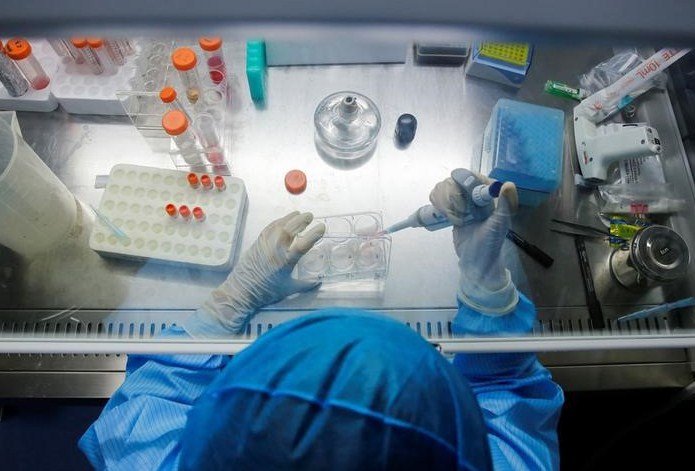The lawsuit, filed on November 30, 2023, in the US District Court for the District of Delaware, claims that 10x Genomics’ Chromium and Next GEM systems, which enable high-throughput single-cell and spatial transcriptomics, infringe Curio’s patents covering methods and systems for analyzing and visualizing genomic data.
Curio’s patents and 10x Genomics’ products
According to the complaint, Curio owns four patents that relate to its flagship product, Curio Platform, which is a cloud-based software that allows users to perform fast and accurate analysis of genomic data, such as RNA-seq, DNA-seq, and single-cell sequencing.
The patents are:
- US Patent No. 10,772,323, titled “Method and system for analyzing and visualizing genomic data”
- US Patent No. 10,772,324, titled “Method and system for analyzing and visualizing genomic data using a graphical user interface”
- US Patent No. 10,772,325, titled “Method and system for analyzing and visualizing genomic data using a graphical user interface with interactive plots”
- US Patent No. 10,772,326, titled “Method and system for analyzing and visualizing genomic data using a graphical user interface with interactive plots and filters”
The complaint alleges that 10x Genomics’ products, namely Chromium Single Cell Gene Expression, Chromium Single Cell Immune Profiling, Chromium Single Cell ATAC, Chromium Single Cell Multiome ATAC+Gene Expression, and Visium Spatial Gene Expression, infringe one or more claims of each of the four patents.
The complaint further alleges that 10x Genomics had knowledge of Curio’s patents since at least September 2020, when Curio sent a letter to 10x Genomics informing them of the patents and offering a license. However, 10x Genomics did not respond to the letter or engage in any licensing discussions with Curio, the complaint says.
Curio’s demands and 10x Genomics’ response
Curio is seeking a jury trial and asking the court to:
- Declare that 10x Genomics has infringed and continues to infringe Curio’s patents
- Award Curio damages adequate to compensate for 10x Genomics’ infringement, including enhanced damages for willful infringement
- Grant Curio a permanent injunction to prevent 10x Genomics from further infringing Curio’s patents
- Award Curio its costs, expenses, and attorneys’ fees
10x Genomics has not yet filed a response to the lawsuit, but in a statement to Reuters, it said that it is “confident in the strength and validity of our intellectual property portfolio and will vigorously defend ourselves against these baseless allegations.”
10x Genomics’ history of patent disputes
This is not the first time that 10x Genomics has been involved in a patent dispute over its gene-sequencing technology. In fact, the company has faced several lawsuits from its competitors and academic institutions in the past few years, some of which are still ongoing.
For instance, in November 2018, a Delaware jury found that 10x Genomics infringed on several University of Chicago patents which were exclusively licensed to Bio-Rad, another biotech company that offers gene-sequencing products. 10x Genomics was ordered to pay $24 million in damages to Bio-Rad and a 15% royalty on sales. 10x Genomics appealed the verdict but the decision was upheld in August 2020.
In March 2020, Harvard College and 10x Genomics sued NanoString Technologies, another biotech company that provides gene-expression analysis platforms, for allegedly infringing two patents covering “gene-mapping” technology. The patents are co-owned by Harvard and 10x Genomics and licensed exclusively to 10x Genomics. The lawsuit is still pending in the Delaware court.
In August 2020, 10x Genomics sued Parse Biosciences, a startup that offers single-cell sequencing services, for allegedly copying its patented gene-analysis technology. The lawsuit is also pending in the Delaware court.
The impact of the lawsuit on the gene-sequencing market
The gene-sequencing market is a rapidly growing and highly competitive field, as more and more researchers and clinicians use genomic data to study and diagnose various diseases, such as cancer, COVID-19, and rare genetic disorders. According to a report by Grand View Research, the global gene-sequencing market size was valued at $9.5 billion in 2020 and is expected to grow at a compound annual growth rate of 15.4% from 2021 to 2028.
10x Genomics is one of the leading players in the market, with a revenue of $298.7 million in 2020 and a market capitalization of $18.4 billion as of December 1, 2021. The company claims to have over 2,000 customers, including academic institutions, biopharmaceutical companies, and clinical laboratories, across 50 countries.
Curio Genomics is a relatively smaller player, with a revenue of $3.2 million in 2020 and a market capitalization of $72.6 million as of December 1, 2021. The company claims to have over 100 customers, including academic institutions, biopharmaceutical companies, and clinical laboratories, across 20 countries.
The lawsuit could have a significant impact on both companies, as well as the gene-sequencing market as a whole, depending on the outcome. If Curio prevails, it could potentially block 10x Genomics from selling some of its core products in the US, or force 10x Genomics to pay a substantial amount of damages and royalties to Curio. This could also open the door for other competitors to challenge 10x Genomics’ patents and products. On the other hand, if 10x Genomics prevails, it could strengthen its position as a dominant player in the market and deter other competitors from infringing its patents and products.

